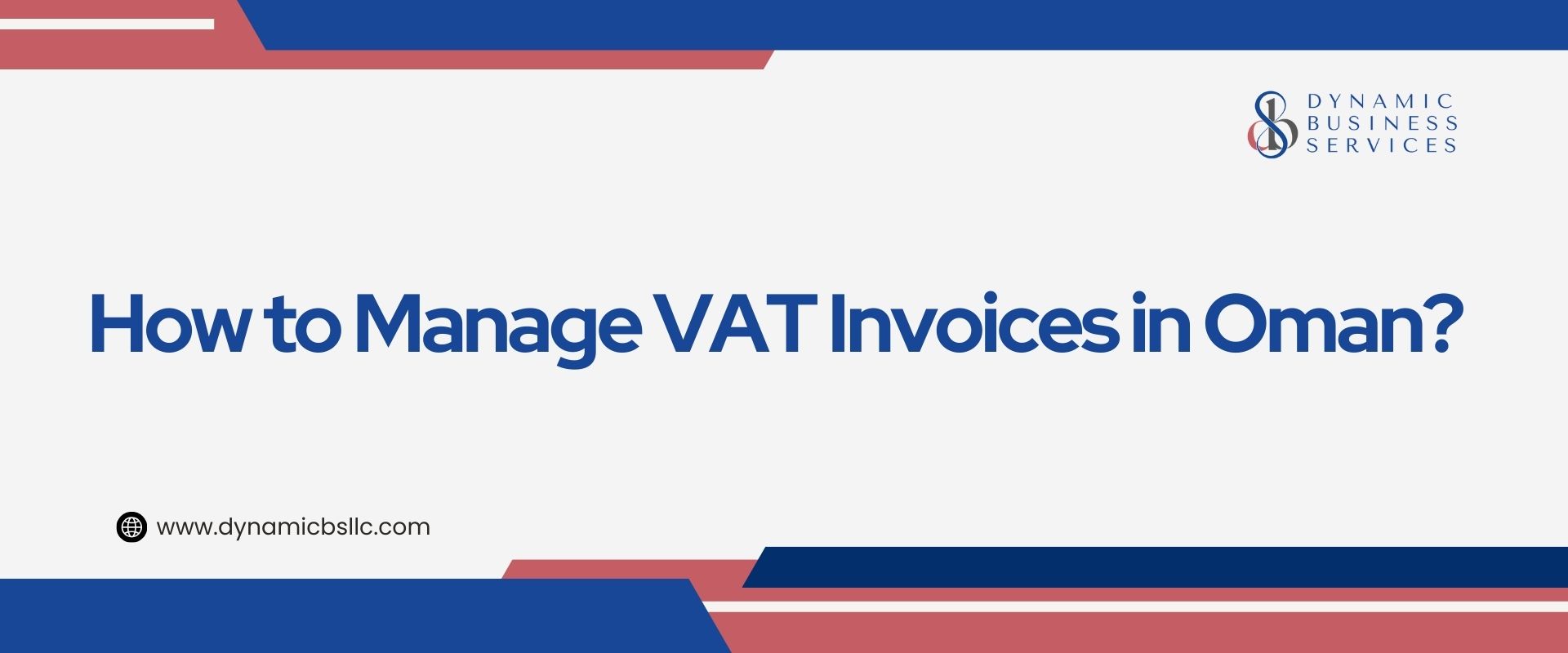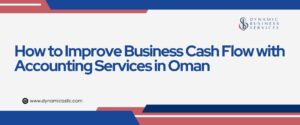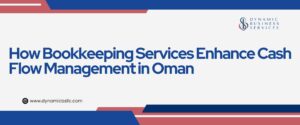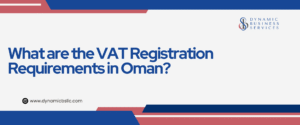The introduction of VAT in Oman has significantly changed how businesses handle taxation, compliance, and reporting. Since its implementation in April 2021, companies are required to issue accurate VAT invoices that comply with the Oman Tax Authority (OTA) standards. Managing VAT invoices effectively ensures compliance, builds credibility, and avoids penalties.
This article provides a detailed guide on what VAT invoices are, their types, requirements, management strategies, common mistakes, and how proper compliance can strengthen your business reputation and attract foreign investors.
Table of Contents
What is a VAT invoice?
A VAT invoice is a legal document issued by a supplier to confirm the sale of goods or services and the VAT charged. It serves as proof of a taxable transaction and allows businesses to claim input tax credits. In Oman, VAT invoices must follow strict formatting and compliance rules.
The importance of VAT Invoices:
VAT invoices are more than simple bills; they are official records recognised by the Oman Tax Authority. They provide transparency in business transactions, enable tax recovery, and protect companies from disputes. Businesses that fail to issue proper VAT invoices may face financial penalties or even legal consequences.
When VAT Invoices Are Required:
VAT invoices must be issued for all taxable supplies of goods and services within Oman. They are also required when exports, imports, or intro-GCC transactions take place. Even zero-rated supplies demand proper invoicing to ensure compliance with tax laws.
Types of VAT Invoices in Oman
The Oman VAT Law specifies two main types of VAT invoices: simplified and full tax invoices. Choosing the right type depends on the transaction amount and nature of the supply.
Simplified VAT Invoices
Simplified invoices are issued for smaller transactions, usually below OMR 500. They contain essential details such as supplier information, VAT registration number, and total amount payable, making them easier for day-to-day retail operations.
Full VAT Invoices
Full tax invoices are mandatory for higher-value transactions. They include detailed buyer and seller information, a breakdown of goods or services, VAT amounts, and applicable tax rates. These invoices provide full documentation for both supplier and customer tax records.
Electronic VAT Invoices
With digital transformation in Oman, electronic VAT invoicing is becoming popular. It allows faster processing and better record-keeping and reduces errors. Many businesses now integrate e-invoicing into their accounting systems for efficiency.
Key Requirements for VAT Invoices in Oman
The Oman Tax Authority mandates specific details on every VAT invoice. Missing information can lead to penalties or rejected claims.
Mandatory Information on VAT Invoices
Each VAT invoice must include:
Supplier’s name, address, and VAT registration number
Customer details for full invoices
Invoice number and issue date
Description of goods or services
Unit price, quantity, and total
VAT rate and amount charged
Language and Currency Requirements
VAT invoices must be issued in Arabic or bilingually (Arabic and English). The currency should be in Omani Rial (OMR), although foreign currency transactions are allowed if VAT amounts are shown in OMR.
Record-Keeping Requirements:
Businesses are required to maintain VAT invoices for at least 10 years. Proper record-keeping ensures compliance during audits and makes VAT return filing smoother.
How to Manage VAT Invoices in Oman Efficiently?
Efficient management of VAT invoices in Oman is crucial for compliance and business credibility. Companies can streamline invoice handling by adopting technology, training staff, and outsourcing to VAT consultants.
Use of Accounting Software:
Modern accounting systems help automate VAT invoicing, reducing human errors. They generate compliant invoices, track VAT amounts, and ensure timely submissions to the OTA.
Staff Training and Awareness:
Employees must be trained on VAT regulations, invoice formats, and reporting requirements. Regular workshops ensure staff can handle invoicing accurately and reduce compliance risks.
Outsourcing VAT Services:
Many companies partner with VAT consultants to manage invoices, file returns, and maintain compliance. Outsourcing saves time, reduces errors, and ensures businesses stay updated with changing VAT laws.
Common Mistakes to Avoid in VAT Invoice Management
Errors in VAT invoices can lead to rejected claims, financial penalties, or even reputational damage. Businesses must avoid these common mistakes to stay compliant.
Missing or Incorrect Details:
Failure to include essential details like VAT registration number, invoice number, or tax rate can make an invoice invalid. Double-checking information before issuing is critical.
Delayed Invoicing
Issuing VAT invoices late can disrupt compliance timelines. Businesses must ensure invoices are generated at the time of supply or within the legal timeframe specified.
Mixing Taxable and Non-Taxable Supplies
Invoices must clearly separate taxable, zero-rated, and exempt supplies. Confusing these categories can lead to errors in VAT reporting and financial discrepancies.
Why VAT Invoice Management Builds Business Credibility
Proper VAT invoice management is more than regulatory compliance—it strengthens business reputation. Transparent tax reporting shows professionalism and builds trust with customers, suppliers, and regulators.
Enhancing Customer Trust:
Customers prefer businesses that issue accurate VAT invoices. It assures them that transactions are legal, transparent, and reliable.
Supporting Audits and Inspections
Businesses with well-managed VAT invoices face fewer challenges during audits. Compliance records demonstrate integrity and improve the company’s standing with authorities.
Building Long-Term Partnerships
Strong invoice management encourages foreign companies and investors to engage in partnerships. It signals that the business operates under international best practices.
How VAT Compliance Attracts Foreign Investors:
VAT compliance plays a direct role in making Oman attractive for foreign investments. Investors value businesses that follow international tax practices and demonstrate transparency.
Confidence in Regulatory Systems
Foreign investors are more likely to trust businesses that adhere to VAT rules. Compliance reflects stability and reduces risks of financial penalties.
Easier Cross-Border Trade
Proper VAT invoices simplify import and export procedures, helping Omani companies expand internationally. Investors prefer dealing with businesses that can handle global tax documentation.
Supporting Economic Growth
By complying with VAT regulations, businesses contribute to Oman’s fiscal stability. This creates a stronger investment climate, attracting more international companies into the market.
Conclusion
Managing VAT invoices in Oman requires accuracy, efficiency, and adherence to legal requirements. From issuing the correct type of invoice to adopting technology and avoiding common mistakes, businesses can ensure compliance while building credibility. Proper VAT invoice management not only prevents penalties but also positions companies as reliable partners for foreign investors.
FAQs
How does VAT work in Oman?
VAT in Oman is charged at 5% on taxable goods and services. Registered businesses collect VAT from customers and remit it to the Oman Tax Authority.
How to manage VAT?
Businesses can manage VAT through accurate invoicing, record-keeping, using accounting software, and outsourcing services to professional VAT consultants.
How do VAT invoices work?
VAT invoices confirm taxable transactions, showing the VAT charged. They allow businesses to reclaim input tax while ensuring compliance with Oman’s VAT law.
What is the VAT invoice method?
It refers to the process of issuing, recording, and reporting VAT invoices as per tax authority requirements. The method ensures businesses account for VAT correctly.
Who issues the VAT invoice?
The supplier of goods or services issues VAT invoices to customers as proof of taxable transactions.
Who needs to issue a VAT invoice?
All VAT-registered businesses in Oman must issue VAT invoices for taxable supplies, exports, and specific zero-rated transactions.








